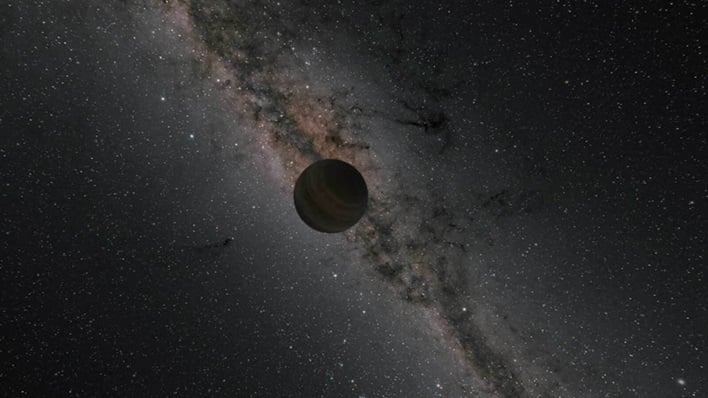
NASA’s Transiting Exoplanet Survey Satellite (TESS) made its first ever startling discovery of a free-floating rogue planet, and NASA says it is hunting for more. While TESS will continue to be on the lookout for more rogue planets, the space agency is hopeful that its upcoming Nancy Grace Roman Space Telescope will be able to unveil countless others.
In the grand scheme of things, there have been over 5,000 exoplanets discovered. Rogue planets, on the other hand, are more difficult to detect, as they do not orbit a star, like an exoplanet. Because of this, a technique referred to as gravitation microlensing, when a planet passes in front of a background star, needs to be utilized to detect them.
The research paper’s authors explained, “Though free-floating planets (FFPs) that have been ejected from their natal star systems may outpopulate their bound counterparts in the terrestrial-mass range, they remain one of the least explored exoplanet demographics.” Further explanation included, “Due to their negligible electromagnetic emission at all wavelengths, the only observational technique able to detect these worlds is gravitational microlensing.”
As the planet passed in front of the star, in this case a star called TIC-107150013, the gravity of the planet warped space-time similar to a camera lens. This allowed the light of the star to be slightly magnified. A new research paper remarks that the gravitational microlensing event in this case lasted 107 minutes.
The authors added that if the newly detected rogue planet is within 8,500 light-years from Earth, its estimated size would be smaller than 10 times the mass of the Earth. If it is found to be within 3.200 light-years, then it is estimated to be around the same mass as Earth.
As TESS continues to hunt for more possible rogue planet candidates, NASA is hard at work preparing the Nancy Grace Roman Space Telescope. Samson Johnson, a graduate student at Ohio State University in Columbus, remarked, “As our view of the universe has expanded, we’ve realized that our solar system may be unusual. Roman will help us learn more about how we fit in the cosmic scheme of things by studying rogue planets.”